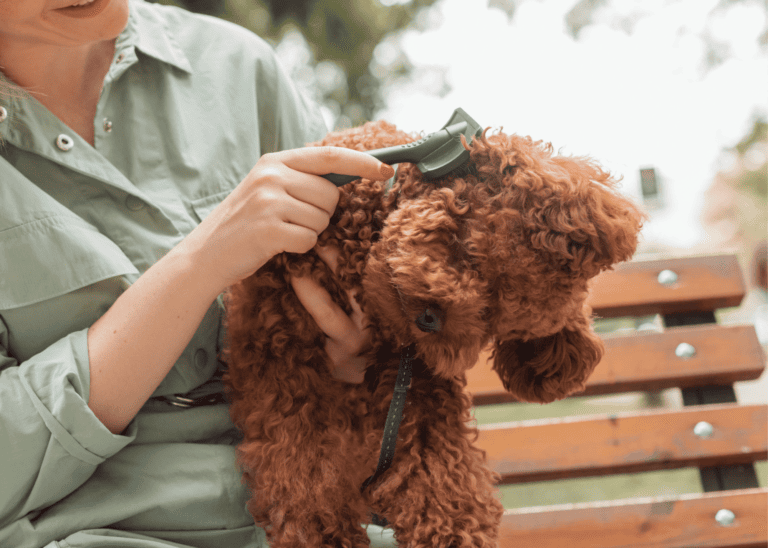
Getting a puppy is really exciting. Sometimes, so much so, that we tend to throw out all our common sense. Okay, maybe I’m just talking about myself here, but I remember the joy I felt when I found the puppy I was looking for. I threw all the questions out the window and all I wanted to do was find ways to convince myself that I didn’t need to ask them the hard questions. Because, if I’m being honest, I didn’t want to hear the wrong answer. After all, that would mean I would have to reconsider them as a breeder and possibly, prevent me from bringing this new member into our family home. Gasp!
But, making sure we are getting a puppy from a responsible breeder is not only the right thing to do for you and your family, it’s the ethical thing to do. Responsible breeders screen homes to prevent dogs from ending up in shelters, they health screen potential parents, they socialize their puppies, and a lot of them actually support breed-rescue efforts.
This post is dedicated to guiding you through the process of getting a puppy from a responsible breeder. I will be listing questions you should consider asking your puppy breeder before deciding if he/she is the right fit for you. These are gathered from personal experience, research, and most importantly directly from breeders I know and trust. Warning, some of these questions may seem difficult to ask, especially if you are anything like me. But trust me, no good breeder will take offense to these.
1. What health testing is done on the parents?
At a minimum, they should be DNA tested. But hips, hearts, and patellas should be tested too. A lot of breeders will say “our dogs are healthy” or are “vet checked” but vets cannot see a dog’s DNA and they cannot see what their hips are like without x-rays.
The relevant genetic testing that should be done is breed specific. For example, a toy poodle should have:
- an Ophthalmologist Evaluation
- a PRA Optigen DNA Test, and
- a patella evaluation.
A golden retriever should have:
- Hip Evaluation
- Elbow Evaluation
- Cardiac Exam
- Ophthalmologist Evaluation
- NCL DNA Test
You can find more information on breed-specific testing requirements from the American Kennel Club Breeder Program Requirements linked here.
Most tests fall into the following categories:
- Hip and elbow scoring – this grades a disease called hip dysplasia and elbow dysplasia. Hip dysplasia is a malformation of the ball and socket joint and it’s most common in larger breeds. Elbow dysplasia is an abnormality in the development of the elbow joints. Both of these can lead to arthritis.
- Eye testing – There are many inherited eye disorders such as cataracts, glaucoma, and retinal diseases. The Canine Eye Registry Foundation registers dogs that are found to be clear of eye problems by a board-certified Veterinary Ophthalmologist.
- Hearing tests – Testing for congenital deafness in dogs can be done through BAER (Brainstem Auditory Evoked Response) testing. According to OFA, it is the ONLY accepted method of diagnosis.“Congenital deafness has been reported for approximately 80 breeds, with the list growing at a regular rate . . . it can potentially appear in any breed but especially those with white pigmentation.”
- Thyroid tests – Hypothyroidism is a common endocrine disease. Some breeds are predisposed to this condition and the best way to prevent it is through the removal of these affected dogs from the breeding pool.
- Heart testing – Many dogs may experience heart disease, but specific breeds are at a higher risk for the condition. The screening modality for this condition is breed-dependent and condition-specific to that breed.
- DNA testing – Genetic testing can avoid diseases and although it will not exclude all, it’s the best option currently available to breeders.
Keep in mind that if you want to obtain health insurance for your dog, which I highly suggest you do, some insurance companies may ask you for specific genetic testing information.
2. Do you offer a health guarantee?
Not only should breeders guarantee that the puppy is currently healthy, but the breeder should also “guarantee” the puppy against health, congenital, and/or genetic defects for some amount of time barring any lifestyle-inducing factors.
Some breeders will guarantee against all genetic defects and others against specific ailments. I would suggest researching the genetic predisposition of your puppy’s breed to know if the breeder has a health guarantee for it. This information can sometimes be found on the breeder’s website.
If you have ever purchased a dog from a reputable, responsible breeder, you know that a signed contract is required. Make sure you read the fine print.
3. Where are the puppies raised?
Where puppies are being raised matters. Is it in the breeder’s home, garage, or backyard shed? Ask to see a video or photos of where they are being raised.
Puppies raised in a home are well socialized and accustomed to household noises which help puppies be less fearful.

If a breeder isn’t willing to at least FaceTime with the puppies, that’s a red flag!
Honest and responsible breeders are more than willing to share. If a breeder does not do this it can mean the conditions are not clean or the puppies are secluded. Anyone can post a cute picture, but what does the puppies’ day-to-day look like?
Transparency is huge! So, a lot can be gained from video calls with breeders. During these calls you can usually tell if the breeder loves dogs and cares for their well-being.
[A] study took place in Poland and involved 44 litters of puppies (264 puppies in total). 160 puppies were raised indoors with their mom, and saw normal household activities as well as the people in the home. The other 104 puppies were raised with their mom in an outdoor kennel. They only saw the breeder during the time that s/he came to care for them (feeding and cleaning).
The puppies were tested by the experimenters when they were 7-8 weeks old, using something called the Puppy Aptitude Test, which has ten subscales. The puppies were then assigned a score between 1 and 6, where numbers in the middle (3 and 4) represent the best family pets.
The results showed that puppies raised indoors were less likely to show signs of fear aggression and more likely to be able to cope with a novel stimulus (such as a noise).
5. Will the puppies be dewormed and vaccinated? If so, on what schedule?
Ask if the puppies will be dewormed (and how many times) and what the puppies’ vaccination schedule would be like.
Also, would they be providing you with these records once the puppy goes home?
The recommended vaccines depend on where you live and what your puppy will be exposed to so it’s best to talk to your veterinarian about this. Something to consider, as with babies, is a delayed vaccination schedule.
6. Do you perform a temperament test on your puppies before placing them with a family?
These tests are not perfect but they can give an experience breeder predictive clues about each puppy’s personality which helps determine what type of family/home is best suited for each puppy. The science seems to be contradictory on the subject, so really just follow your gut on this one.
7. Do you start potty training the puppies as soon as they are mobile?
A puppy’s potty-training journey begins with its breeder. Most breeders start potty training the puppies early on by establishing a separate area for going potty, sleeping, playing, and eating. Success here sets a good foundation for when the puppy finds its forever home.
Narrowing these down to just seven has been very difficult, so I’ll leave you with a bonus one.
How long have you been breeding?
I know this is a bonus question, but so important when it comes to selecting a breeder. You need a breeder with experience. Experience develops instincts. A responsible breeder dedicates time and money and are, essentially, lifelong students.
Whether you decide to adopt or go through a breeder, I hope this has been helpful to you. If nothing else, I hope I have inspired you to do your own research before bringing a four-legged family member home. I’ll leave you with this, difficult questions allow for open and honest conversations, and, in my opinion, your puppy deserves that!














